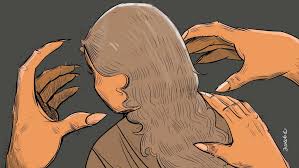
A staggering 75.9 per cent of women in Bangladesh have faced violence at least once in their lives, according to the Violence Against Women Survey 2024.Rural areas edge slightly higher at 76 per cent, compared to 75.6 per cent in urban centres, but regional disparities tell a darker story: Barisal and Khulna top the list with 81.5 per cent of women affected, while Sylhet trails at 72.1 per cent.Unveiled on Thursday, February 27, at the Bangladesh Bureau of Statistics (BBS) auditorium in a joint event with the United Nations Population Fund (UNFPA), this third survey of 2024 offers the most comprehensive look yet at the scale, nature, and impact of violence against women in the country.The numbers are unrelenting: 78.5 per cent in Chattogram, 75.1 per cent in Mymensingh, 74.5 per cent in Rajshahi, 74.1 per cent in Rangpur, and 72.9 per cent in Dhaka have endured violence at least once.Across the nation, 70 per cent of women have faced physical, sexual, psychological, economic, or controlling behaviour in their lifetime, with 41 per cent experiencing it in the past year alone.
Over the last decade, sexual violence has surged to 28.5 per cent—up from 27.2 per cent in 2015—eclipsing a decline in physical violence and signalling a shifting, persistent threat.
Conducted by BBS and UNFPA with UNFPA funding, the survey pinpoints intimate partner violence as the grim heartbeat of this crisis, with most women suffering at the hands of spouses or husbands.
A chilling trend emerges: women in disaster-prone areas face significantly higher rates of spousal abuse, both lifelong and in the past 12 months, than those in less vulnerable regions—an echo of how natural disasters amplify human ones.
Yet, silence smothers justice. Only 7.4 per cent of survivors seek legal recourse, leaving 92.6 per cent to endure in quiet agony.
About 64 per cent never speak of their ordeal, their voices stifled by the need to protect family honour, shield their children’s future, or accept violence as life’s norm.
Senior Secretary of the Ministry of Women and Child Affairs, Momtaz Ahmed, traced this to mindset. “Violence exists even in Europe and America,” she said. “But at Hajj, where men and women mingle, it vanishes—religious intent overrides it.”
Aligned with UN standards, the data grows bleaker when Bangladesh-specific behaviours are included. For millions of women, home is a battleground, and silence their fragile shield—a sobering truth this survey lays bare.

